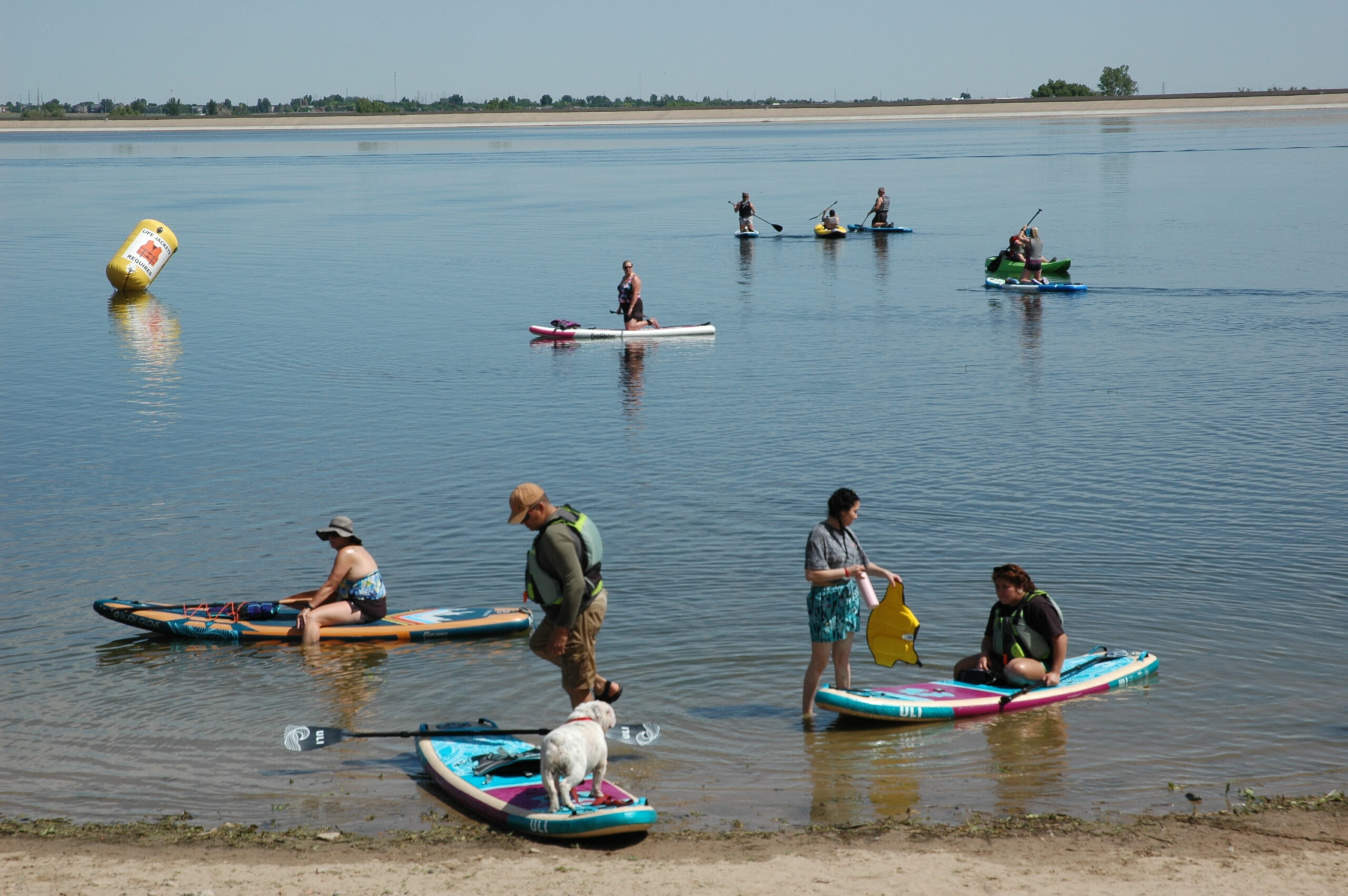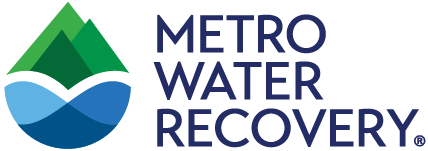Guide to PFAS: Help Us Keep PFAS out of the Water Cycle

Paddle boarders enjoying the still waters of Barr Lake. With your careful power of choice as a consumer, you can help us limit PFAS from entering the water cycle to preserve Colorado’s water for future generations.
PFAS—which stands for per- and polyfluoroalkyl substances— are synthetic chemicals used by manufacturers to produce many household items since the late 1930s. Products with PFAS include items such as firefighting foams, adhesives, cosmetics, paper products, outdoor apparel, ski waxes, and much more. There are thousands of different types of PFAS used in different industrial applications or applied to consumer products. These chemicals – commonly deemed “forever chemicals” – are persistent, meaning the chemicals break down slowly.
The human health effects are unknown for most PFAS chemicals because the majority have not yet been studied. However, according to the EPA, scientists have begun to study the health effects of two particular PFAS chemicals – PFOS and PFOA – which are used in some firefighting foams. EPA acknowledges that the science regarding PFOA and PFOS human health and environmental effects is still evolving. Based on the information that is available, the EPA believes there is evidence that exposure to these two particular PFAS chemicals may lead to adverse human health effects, primarily in high-exposure communities.
PFAS and the Water Cycle
The lifecycle of PFAS does not begin at water treatment and recovery facilities. PFAS is not used in the treatment of wastewater either. So how does PFAS enter the water cycle? Consumer products containing the ‘forever chemicals’ are used in homes and by businesses. When these PFAS-containing products are washed, rinsed or flushed, they enter the water cycle through wastewater that flows to domestic water recovery facilities, which are designed to treat residential sewage, primarily biological carbon, phosphorus and nitrogen, and are not able to remove or destroy manufactured chemicals like PFAS. According to the EPA, PFAS are found in water and soil throughout the world, including remote polar regions.
How You Can Help
But did you also know that you can help us reduce PFAS chemicals from entering the water cycle? Many manufacturers are now offering PFAS-free products and alternatives. As a consumer, you can use the power of choice to do your part. We’ve begun curating a list of PFAS-free resources and products below.
- PFAS Central, an initiative from the Green Science Policy Institute, provides an extensive list of PFAS-free products, including cosmetics, household cleaners, cookware, outdoor apparel, and more.
- The Environmental Working Group also provides an extensive list of PFAS-free products, including links to company policies regarding these chemicals.
- If you’re a skier or snowboarder, consider using a PFAS-free wax. These waxes are better for the environment, in addition to being safer for ski technicians. If you like supporting Colorado-based companies, consider chemical-free waxes from Purl or plant-based waxes from MountainFLOW.
Doing Our Part
Earlier this year, Metro Water Recovery supported a legislation that reduced PFAS chemicals that enter the water cycle in Colorado. A collaborative, bi-partisan bill presented at the Colorado capitol, HB22-1345 intends to stop manufacturing companies from introducing PFAS into Colorado’s water cycle by prohibiting the use of the chemicals in everyday products. Under the bill, the use of PFAS in everyday household items will be phased out over the next several years. The bill was signed into law by Governor Jared Polis in June. Read more about HB22-1345 here. While this will help, we also need the help of the 2.2 million people we serve to stop using PFAS laden products where possible.
Metro Water Recovery has developed an educational PFAS webpage on our website to provide access to sampling data and help our communities learn about the complexities of this issue. View that page here.
Call to Action
At Metro Water Recovery, we get your water. The biggest reduction in these forever chemicals can come from the choices you make every day to reduce and eliminate PFAS from your daily life. Thank you for doing your part to help stop PFAS from entering the water cycle in Colorado. If you would like us to add any products or resources to our list, please reach out to us using the Contact Us form on this website.
